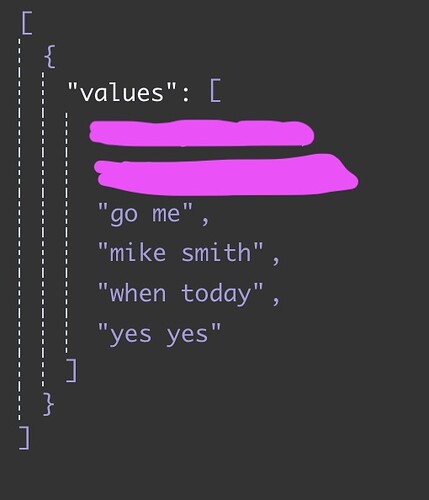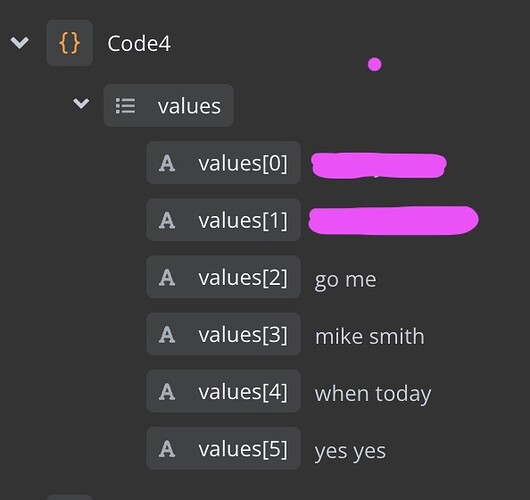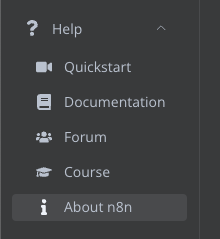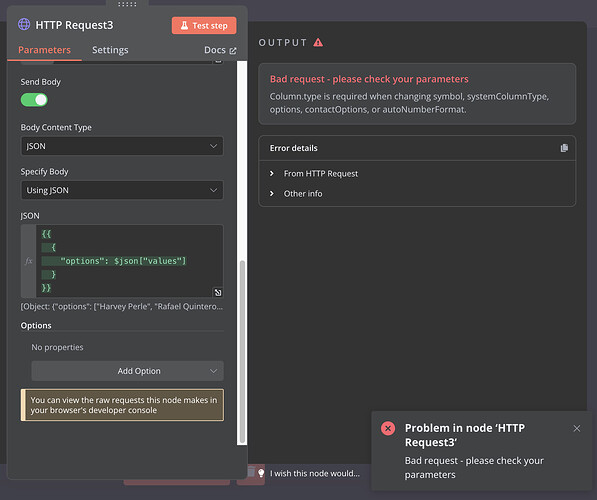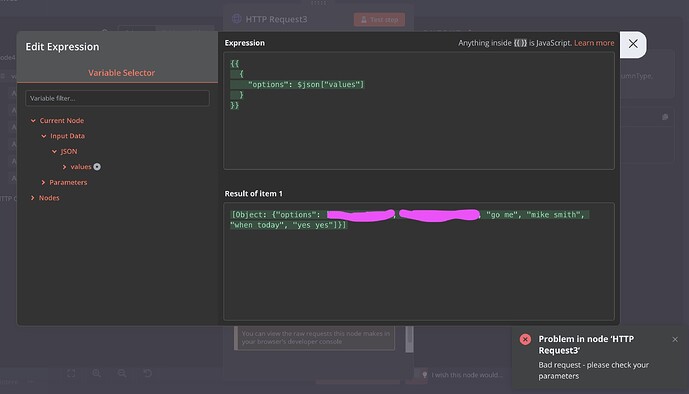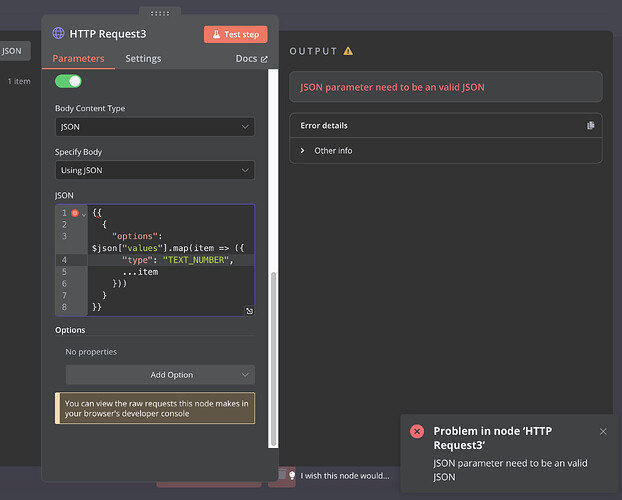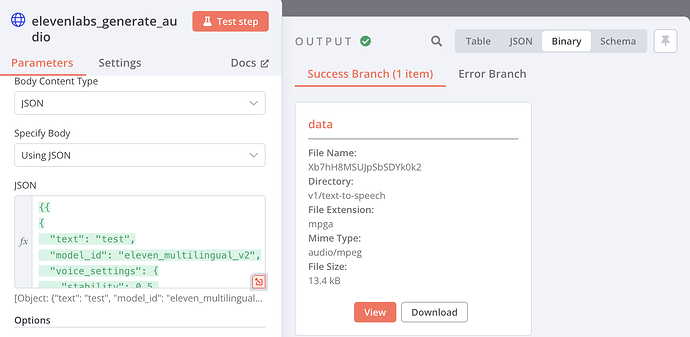Any insight would be helpful. It’s sucha simple line of code and I can’t figure it out.
I’ve gone through articles and discussions and I still can’t figure out what is wrong with the code.
I’ve tried:
{
"options": {{ $json["values"] }}
}
{
"options": {{ JSON.stringify($json["values"]) }}
}
{
"options": {{ $json["values"].map(item => JSON.stringify(item)).join(', ') }}
}
Describe the problem/error/question
I keep JSON parameter need to be an valid JSON
What is the error message (if any)?
JSON parameter need to be an valid JSON
Please share your workflow
Share the output returned by the last node
Information on your n8n setup
- n8n version:
Can’t tell there was an upgrade a day or two ago and than another upgrade but the system wont let me upgrade (it logs out) - Database (default: SQLite):
?? - n8n EXECUTIONS_PROCESS setting (default: own, main):
?? - Running n8n via (Docker, npm, n8n cloud, desktop app):
Cloud - Operating system:
MacOS
